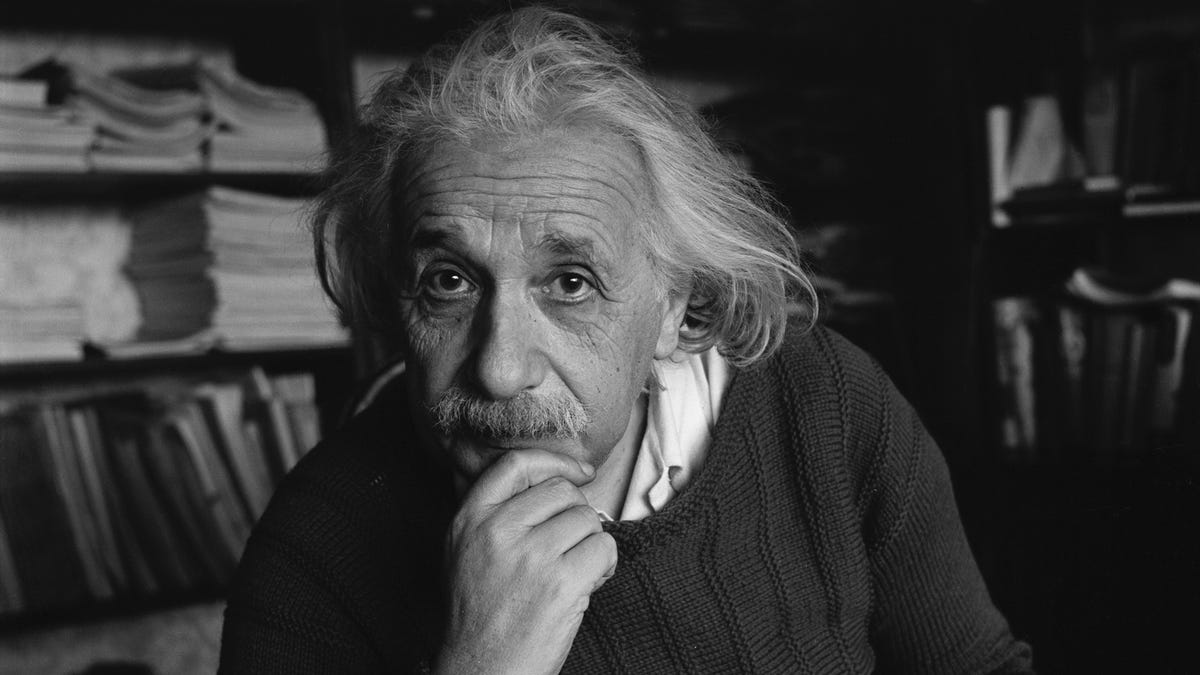When we talk about intelligence, one name stands out above the rest: Albert Einstein. His legendary intellect and groundbreaking theories have made "Einstein IQ" a benchmark for genius worldwide. But what exactly does it mean to possess an Einstein IQ? And how does this extraordinary level of intelligence shape our understanding of human potential? In this comprehensive article, we'll delve deep into the world of Einstein's intellectual prowess, exploring what made his mind so remarkable.
The concept of Einstein IQ has fascinated people for generations. It represents the pinnacle of human intellectual capability, a standard against which all other forms of brilliance are measured. As we unravel the mysteries of this extraordinary intelligence, we'll uncover the factors that contributed to Einstein's remarkable cognitive abilities and how they continue to influence scientific thought today.
Whether you're a student of science, a curious mind, or simply someone who appreciates the wonders of human intellect, this article will provide valuable insights into what it means to possess an Einstein IQ. Let's embark on this journey of discovery together, exploring the depths of one of history's greatest minds.
Read also:Steve Nash And Wife A Deep Dive Into Their Relationship Life And Achievements
Table of Contents
Measuring Intelligence: IQ Tests and Einstein
The Unique Structure of Einstein's Brain
Einstein's Contributions to Science
The Modern Impact of Einstein IQ
Read also:Actor Stonestreet Of Modern Family A Comprehensive Look At Eric Stonestreets Career Life And Legacy
Comparing Einstein IQ to Modern Standards
Can We Develop an Einstein IQ?
Criticism and Misconceptions About Einstein IQ
Conclusion and Future Implications
Biography of Albert Einstein
Before we delve into the specifics of Einstein IQ, let's first understand the man behind the legend. Albert Einstein was born on March 14, 1879, in Ulm, Germany. His early life was marked by a deep curiosity about the world around him, which eventually led to his groundbreaking discoveries in physics.
Early Life and Education
Einstein's childhood was filled with moments of intellectual exploration. Despite initial struggles with traditional education methods, he demonstrated a remarkable aptitude for mathematics and physics from an early age. Below is a brief overview of his personal information:
| Full Name | Albert Einstein |
|---|---|
| Date of Birth | March 14, 1879 |
| Place of Birth | Ulm, Germany |
| Profession | Theoretical Physicist |
| Major Contributions | Theory of Relativity |
| Death | April 18, 1955 |
What is Einstein IQ?
When we refer to Einstein IQ, we're talking about an intellectual capacity that far surpasses the average human mind. While traditional IQ tests weren't designed to measure Einstein's specific type of genius, historians estimate his IQ to be around 160-190. This range places him among the most brilliant minds in history.
Defining Intelligence
- Intelligence encompasses various cognitive abilities, including problem-solving, abstract thinking, and pattern recognition.
- Einstein's IQ reflects his exceptional ability to think abstractly and creatively, qualities essential for his groundbreaking scientific discoveries.
- Modern research suggests that intelligence is a combination of genetic factors, environmental influences, and personal experiences.
Measuring Intelligence: IQ Tests and Einstein
Traditional IQ tests measure specific cognitive abilities, but they often fail to capture the full spectrum of human intelligence. Einstein's genius went beyond what standard tests could measure, emphasizing the importance of creativity and abstract thinking in scientific innovation.
Limitations of IQ Tests
According to a study published in the journal Intelligence, traditional IQ tests only account for a portion of an individual's cognitive capabilities. Einstein's contributions to science demonstrate that true genius often transcends the limitations of standardized testing.
The Unique Structure of Einstein's Brain
Upon Einstein's death, researchers conducted extensive studies on his brain, revealing several unique structural features. These findings provide valuable insights into the biological basis of exceptional intelligence.
Key Discoveries
- Enlarged parietal lobes, associated with mathematical and spatial reasoning.
- Increased connectivity between different brain regions, facilitating complex thought processes.
- Thicker corpus callosum, enhancing communication between the brain's hemispheres.
Einstein's Contributions to Science
Einstein's groundbreaking theories have fundamentally changed our understanding of the universe. His theory of relativity, in particular, revolutionized the field of physics and continues to influence scientific thought today.
Major Achievements
- Special Theory of Relativity (E=mc²)
- General Theory of Relativity
- Photoelectric Effect (earning him the Nobel Prize in Physics)
The Modern Impact of Einstein IQ
Einstein's intellectual legacy extends far beyond the realm of theoretical physics. His ideas have influenced countless fields, from technology to philosophy, demonstrating the far-reaching impact of extraordinary intelligence.
Applications in Technology
Modern innovations such as GPS systems and semiconductor technology owe their existence to Einstein's theories. These advancements highlight the practical applications of abstract scientific concepts.
Comparing Einstein IQ to Modern Standards
While Einstein's IQ remains a benchmark for intellectual excellence, modern advancements in cognitive science have expanded our understanding of intelligence. Today's researchers recognize multiple forms of intelligence, each contributing to human achievement in different ways.
Multiple Intelligences Theory
Harvard psychologist Howard Gardner's theory of multiple intelligences suggests that intelligence is not a single entity but a collection of distinct cognitive abilities. This perspective provides a more comprehensive view of human intellectual potential.
Can We Develop an Einstein IQ?
While few will ever reach Einstein's level of intellectual brilliance, research suggests that cognitive abilities can be enhanced through dedicated practice and education. Modern neuroscience has identified several strategies for improving intellectual performance.
Proven Methods
- Engaging in mentally stimulating activities
- Pursuing lifelong learning opportunities
- Maintaining a healthy lifestyle to support brain function
Criticism and Misconceptions About Einstein IQ
Despite his undeniable genius, Einstein faced criticism during his lifetime and continues to be the subject of debate in academic circles. Understanding these criticisms provides valuable context for appreciating his contributions to science.
Common Misconceptions
- Einstein failed math as a child (false)
- His theories have been disproven (not entirely accurate)
- His intelligence was solely innate (environmental factors played a significant role)
Conclusion and Future Implications
In conclusion, Einstein IQ represents the pinnacle of human intellectual achievement. Through his groundbreaking discoveries and unique cognitive abilities, Albert Einstein has left an indelible mark on the world of science. As we continue to explore the mysteries of human intelligence, his legacy serves as a powerful reminder of what the human mind can achieve.
We invite you to join the conversation by sharing your thoughts in the comments section below. For more fascinating insights into the world of science and intelligence, explore our other articles on this site. Together, let's continue the journey of discovery inspired by one of history's greatest minds.
Data sources: Scientific American, Nature, Intelligence Journal, Harvard University Press


